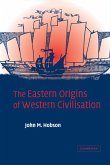This book presents Ibn Khaldun's anticipatory sociology of civilisations and power. Half a millennium before the birth of modern sociology in the West, Ibn Khaldun-scholar, political counsellor, and Malikite judge-wrote a revolutionary sociological-philosophical treatise, the Muqaddima. This book places his broad, complex, and refined treatise against the background of the Islamo-Greek culture of his time and analyses its main sociological, but also philosophical, historical, and scientific perspectives. Finally, thanks to its "universalisable" core, the author recontextualizes the teachings from the Muqaddima to reveal the deep insights it provides into the society, politics and law of contemporary liberal and multicultural civilisations.
A deeper reception of Ibn Khaldun's perspective is not only important in understanding the Arab contribution to social theory, social history and philosophy, but also diversifies the sociological project beyond the Euro-American standpoint.
Given its interdisciplinary appeal, the book addresses a wide readership of students and scholars in sociology, the sociology of law, philosophy of law, philosophy of history, political philosophy, history of civilisations, political sociology, and Arabic studies.
A deeper reception of Ibn Khaldun's perspective is not only important in understanding the Arab contribution to social theory, social history and philosophy, but also diversifies the sociological project beyond the Euro-American standpoint.
Given its interdisciplinary appeal, the book addresses a wide readership of students and scholars in sociology, the sociology of law, philosophy of law, philosophy of history, political philosophy, history of civilisations, political sociology, and Arabic studies.








